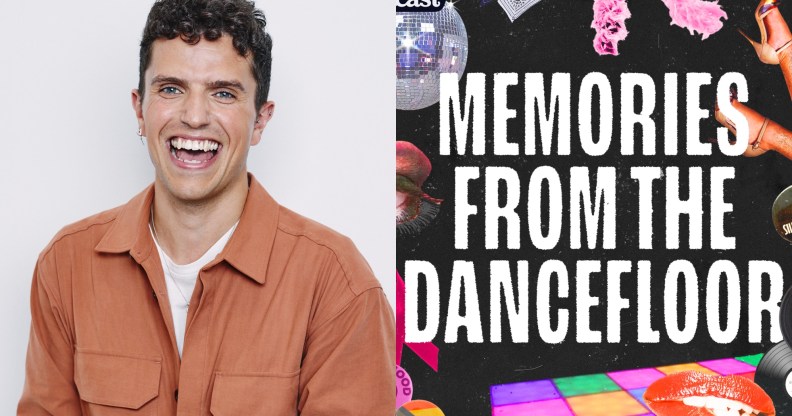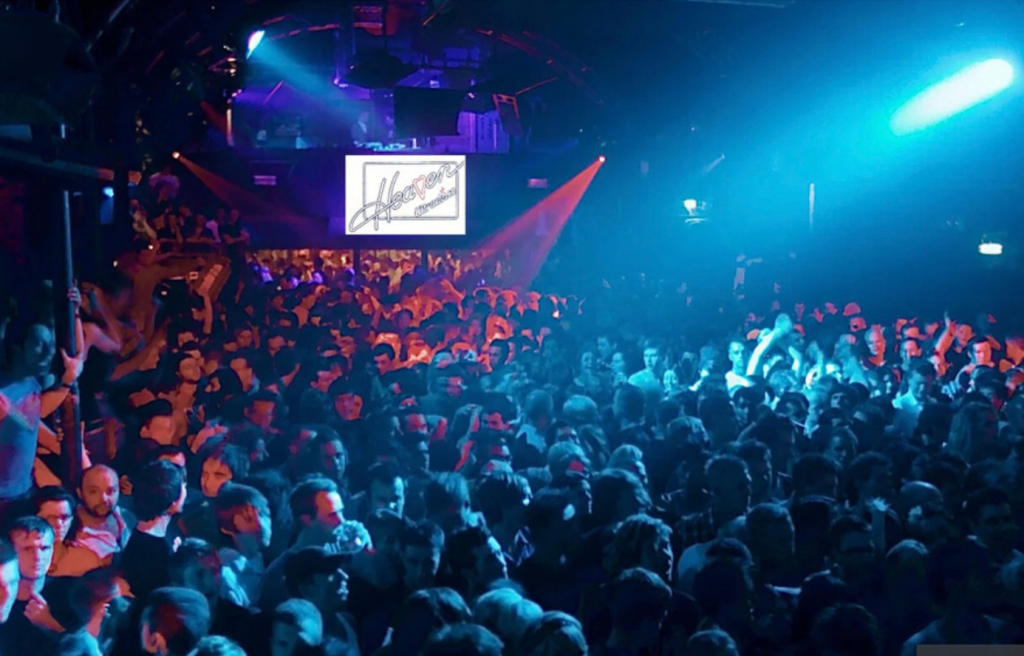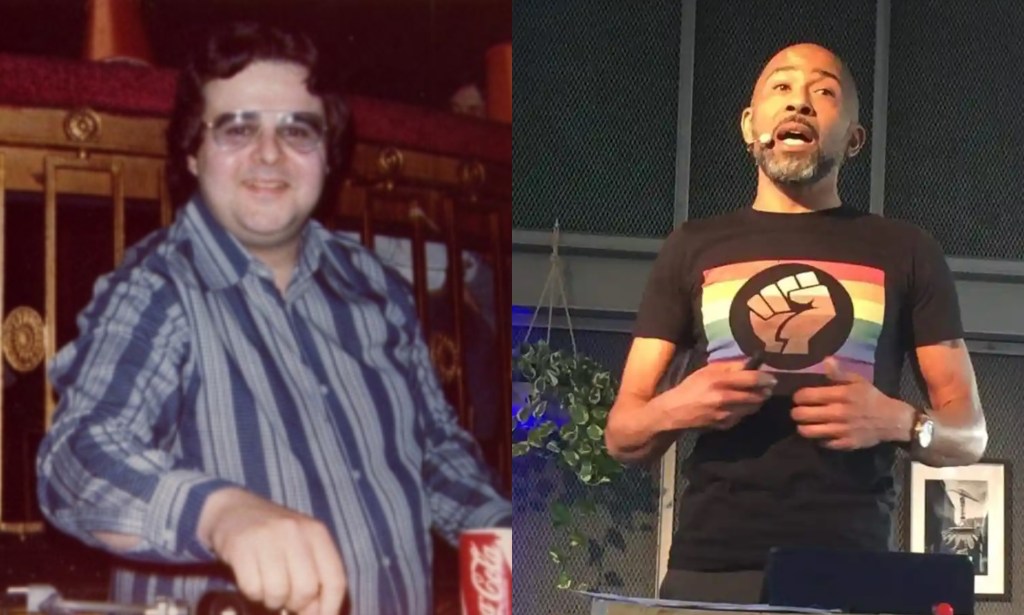This fascinating new LGBTQ+ podcast explores the forgotten history of British queer nightlife

Damian Kerlin is a podcast host and same-sex adopter from Cardiff (Supplied)
As LGBTQ+ venues across the UK continue to face the threat of closure, new podcast Memories from the Dance Floor wants to preserve the community’s rich social history.
Clubs and bars have always been a space for LGBTQ+ people to escape the harsh reality of the streets and places where they can learn to accept themselves.
However, in the past few decades, venues up and down the country have faced severe underfunding and lack of growth, issues exacerbated by the Covid-19 pandemic. As the news cycle continues to divide parts of the community, our shared history has never been more important – and new podcast Memories from the Dance Floor is on a mission to do just that.
Released to coincide with LGBT History Month, the fascinating docuseries looks to unravel the forgotten history behind queer nightlife across the UK by sharing the stories of club owners, promoters, DJs and patrons who were at the heart of the 20th century gay club scene.
It’s been a labour of love for journalist and host Damian Kerlin, who grew up in Derry and first found refuge in a gay club on the fringes of town.
Over the past five years, Kerlin has immersed himself in the written and verbal history of LGBTQ+ community spaces, piecing together their vital impact at the end of the 20th century and exploring why the issues that threaten their survival today.

Kerlin tells PinkNews that most of the material he came across during his research for the podcast centred around coming out and inherited trauma.
“Although those [stories] 100% have a place and deserve to be told,” he explains, “for me, there was a real lack of the moments of joy found among all the chaos.”
As the endlessly bleak news cycle wore on during the Covid-19 crisis, Kerlin says the objective of the podcast began to change. “There was a shift from romanticising [the history] and the nostalgia to realising these spaces are being shut down,” he recalls. “There’s an urgency where we have to record this history more than ever.”
From delving into the secret past of London’s gay clubbing institution Heaven to the ever-changing diversity of Birmingham’s Nightingale, Kerlin hopes to open a window onto the forgotten history behind British queer nightlife. It’s with an intersectional lens, too, that the podcast reflects on the movement by giving fair representation to all the voices within the community.
The first episode features interviews with both Heaven founder Jeremy Norman and pioneering DJ Ian Levine but, as Kerlin acknowledges, both are “privileged white gay men”.
After struggling to find more niche history in the pages of history books, he approached the HIV and Aids activist and curator of Black British LGBTQ+ history, Marc Thompson.
In the opening episode, we hear from Thompson about a hidden bar nestled at the back of Heaven that welcomed Black and Brown queer people, who have historically faced discrimination from the community.
“As a community, we’re not good at recording the more challenging times and internalised issues we faced,” Kerlin notes.
“No one is going to put in a book ‘we were racist’, it’s something that is going to come from word of mouth. I wanted the podcast to do that.”

The podcast confronts the bigoted history some of these spaces were built on, such as “white male only” member clubs and the alienation of queer women.
For example, when Nightingale hired their marketing and events manager, Dan, more than a decade ago, he pushed to “diversify the nights” making the club “representative” of the multicultural city.
“If these clubs and spaces want to survive in the current market, they have to really start working with the community, as opposed to putting on what they think they want,” Kerlin says.
Reflecting on his own journey, he urges other members of the LGBTQ+ community to get in tune with politics, especially as we lose historic gay spaces such as London club Kazbar, Molly Moggs, The Black Cap and The Joiners Arms.
“We’re losing the oral history that just gets passed down through conversation and through meeting new people. We now need to really make an effort to educate the younger [people] because there’s always so much to learn.”

Kerlin hopes clubs and queer spaces can get back in touch with their roots as hubs for LGBTQ+ activism, pointing to the inspiring display of solidarity across gay bars in London after the tragic Pulse nightclub shooting in 2016.
“To be able to have that connection, without even meeting half those people, we all have that understanding of each other and how easily we can lose certain things,” he says.
Kerlin also urges venues to understand that “[the LGBTQ+ community] has grown massively. We are so different to what we were 10 years ago, we’re so different to even yesterday”, and that they need to keep up.
The rest of the podcast’s season will delve into clubs across the country, speaking to various founders and those instrumental in early queer spaces – from “party boys to dykes to drag queens” – as well as discussing how we can save these spaces from demise.
Memories from the Dance Floor is now streaming on Spotify and Apple, an Acast Amplifier podcast.
How did this story make you feel?

